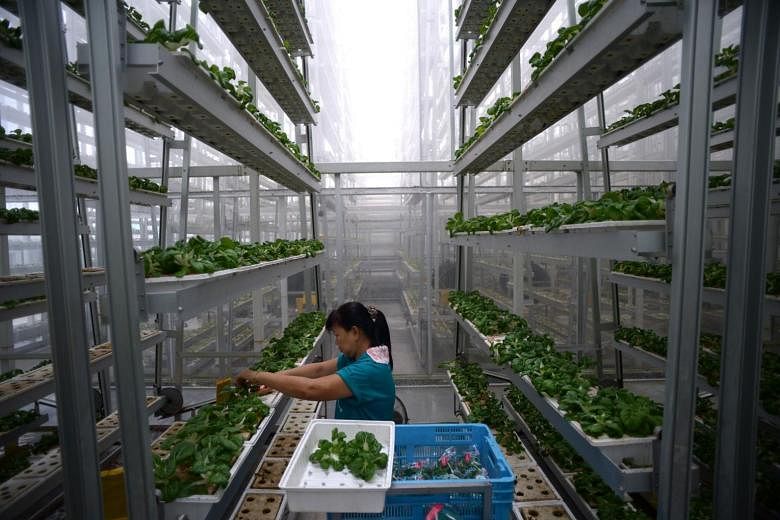The practice of urban farming has picked up both in scale and sophistication globally in recent years, but remains nascent in Singapore, said the Urban Redevelopment Authority.
It is hoping to make a bigger push for commercial farms - large-scale, high-productivity, high-intensity ones, usually with restricted access and selling their produce commercially - over community farms, as the former play an additional role in boosting Singapore's food security, said a spokesman.
URA said it has received inquiries in recent years on setting up urban rooftop commercial farms, but few have materialised into actual applications.
Existing commercial rooftop farms in Singapore include Comcrop's 600 sq m farm at *Scape, and CapitaLand's rooftop farm at Raffles City which uses its produce to manufacture beauty products in collaboration with its business partner Spa Esprit Group.
But most rooftop farms are still smaller-scale community farms. There is one atop a seven-storey tower at Khoo Teck Puat Hospital in Yishun, and another on the rooftop of architecture firm Woha's office in Hong Kong Street.
CapitaLand is also building a 5,300 sq ft urban farm and 6,900 sq ft edible yard in its upcoming Funan integrated development.
A spokesman for the Agri-Food and Veterinary Authority (AVA) said: "While there is growing interest from companies to develop edible rooftop gardens as part of their corporate social responsibility efforts, the concept of rooftop farming in Singapore is still new and limited to small-scale community-based farming."
Small-scale community-based farms do not require URA's approval. For farming activities conducted on a commercial basis, farmers have to apply for a farm licence from AVA and can approach URA and building owners to seek support and approval for rooftop use.
A spokesman for Edible Garden City, which champions the grow-your-own-food movement in cities, said the company hopes to utilise underused places such as rooftops and office space to grow vegetables to help Singapore become more self-sufficient in its food supply and reduce its food miles - the distance food is transported from the time of its production until it reaches the consumer.

